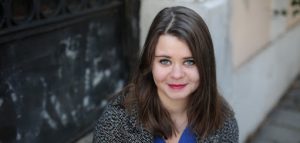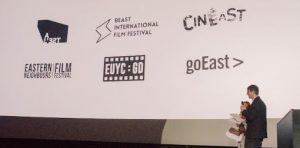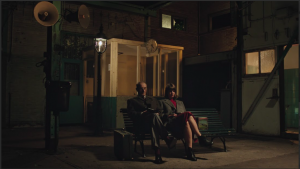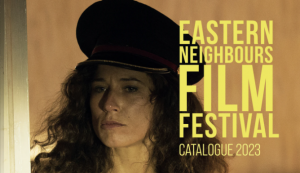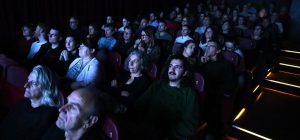
Sweet Emma, Dear Bobe
| Director | Istvan Szabo |
| Producer | Gabriella Grosz – Objektiv Filmstudio; Manfred Durniok |
| Writer | Istvan Szabo |
| Camera | Lajos Koltai |
| Editor | Eszter Kovacs |
| Sound | Gyorgy Kovacs |
| Cast | Johanna Ter Steege, Eniko Borcsok, Peter Andorai, Eva Kerekes, Hedi Temessy, Erzsi Pasztor |
| Original Title | EDES EMMA, DRAGA BOB – VAZLATOK, AKTOK |
| Year | 1992 |
| Length | 90 min |
| Country | Hungary |
| Section | Closing Film Focus: Europe, 30 Years After the Berlin Wall |
| Screening | Sunday 10 November | 18:45 hours | Filmhuis Den Haag |
A must-see classic that was awarded the Silver Bear at the 1992 Berlinale, with a remarkable performance by the Dutch actress Johanna ter Steege. Probably the most improvised film ever made by Istvan Szabo, it was the first to depict the hard changes of the Hungarian society started in 1989. The screening will be followed by Q&A with the actress Johanna ter Steege.
Synopsis
Emma and Bobe came to Budapest from the countryside to teach Russian. The only problem is that Russian is no longer wanted. Russian schoolbooks are burnt, teachers are mocked. Schools now ask for compulsory English, which the two young women never learned. The two girlfriends fall on hard times – Emma becomes a maid while Bobe ends up in prison for illegal money changing and prostitution. Only one will survive.
Festivals & Awards (selection)
Berlin International Film Festival, 1992 – Silver Bear (Special Jury Mention), European Film Award (Best Screenplay), Nominee Best Actress (Johanna Ter Steege) | Association of Polish Filmmakers Critics’ Awards, 1993 – Best Foreign Film | Italian Film Critics’ Award, Rome 1992 – Silver Ribbon
Director’s bio
Oscar-winner István Szabó is the most internationality acclaimed Hungarian filmmaker. Graduating the Hungarian Academy of Theatrical and Cinematic Art in 1957, he was a founding member of the Béla Balázs Stúdió. His first feature film was “Álmodozások kora / The Age of Day-Dreaming”, in 1964. Working in the tradition of European auteurism, most of his 17 films represent many of the historical and psychological conflicts of Central Europe’s recent history, as well as of his own personal history. Besides feature films, he has also directed several poetic films about Budapest (“Budapest”, “Why I Love It”, “1971”). His greatest international success is “Mephisto” which won the Oscar for Best Foreign Language Film. Besides, three other of his films have been nominated for Oscar – “Confidence”, “Colonel Redl” and “Hanussen”. ”Confidence” also won the Best Director award at the Berlin International Film Festival. His ‘Klaus-Maria Brandauer trilogy’ has won in total almost 40 awards all over the world.


